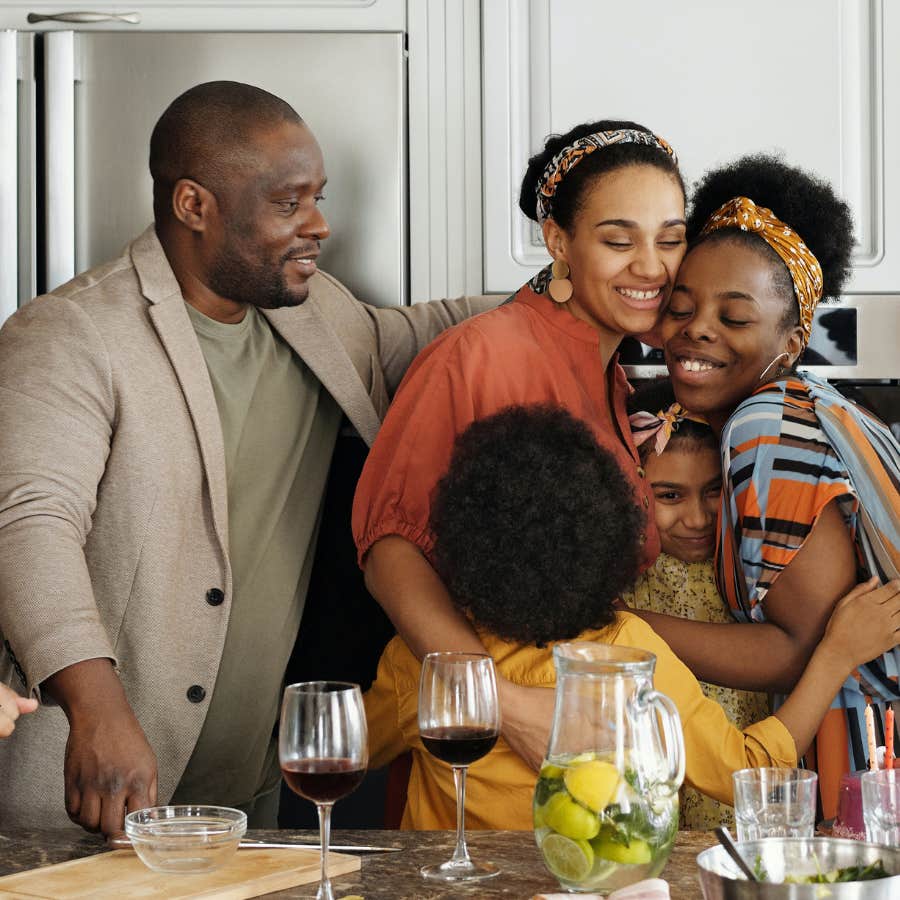Attachment Therapist Shares 3 Clinical Observations About Gen-X As Parents — And Why They Behave The Way They Do
Part of parenting is doing the hard emotional labor of letting your kids be vulnerable.
 ilonakozhevnikova, fizkes | Canva
ilonakozhevnikova, fizkes | Canva A therapist named Steph recently found herself in the spotlight after her astute observations on how Boomers and Millennials approach parenting gained widespread attention across the internet.
Her presence on TikTok is rooted in being a Licensed Mental Health Counselor and a Licensed Marriage and Family Therapist. She explains in her bio that she focuses on relationships, trauma and self-growth, and clarifies that her posts aren’t a substitute for therapy.
Steph followed up on her Millennial versus Boomer parenting post with a post addressing Gen-X parents, based on her own experience as a clinician.
She shared 3 clinical observations about Gen-X parents, exploring why they behave the way they do.
Gen-X parents don’t seek out family therapy.
Steph explained that she sees way fewer Gen-X parents participating in family therapy than Boomer parents. She qualified this observation by noting that it comes from her own experience within her family practice, and mentioned not knowing why that particular pattern seems to hold true.
“I am super motivated and interested in working with Gen-X parents,” she explained. “Especially seeing how hard you are working in my comments section, that has been really enjoyable to read.”
Steph noted that she sees many Gen-Xers in individual therapy, yet when it comes to family therapy, their presence is lacking.
Gen-X parents are sometimes emotionally indistinguishable from Boomers.
She qualified her statement as an observation that might be the hardest one for Gen-X parents to receive, saying, “I can see that Gen-X parents are really pushing themselves to receive more from their children and to be more emotionally vulnerable to their children."
In a text overlay, she noted that the phrase “receive more” means “being open to hear more of their children’s emotional needs and vulnerability without immediately shutting them down.”
She explained that she sees this pattern through “an individual therapy lens, meaning, I process things with their children, and then I say, ‘Hey, you need to bring this to your parent, and this is going to enhance vulnerability and your connection to your parent, which you want.’”
“They take it to their parents, and how their kids come back to me is how I hear their parents are processing it. And I can hear that they’re really trying, and it’s really, really hard.”
 Photo: August de Richelieu / Pexels
Photo: August de Richelieu / Pexels
In another block of overlaid text, she spelled out what she sees as evidence that Gen-X parents are working at being more open to their kids’ emotional needs, including, “not exploding in anger, not immediately shutting down into parental shame, making attempts to reassure or validate.” Even though Gen-X parents are actively trying to be more emotionally available, Steph said, “I can still hear that wall, in terms of vulnerability. They’re allowing that open-heartedness to up until a point.”
She defined the wall as “I can only hear so much of my child’s needs and vulnerabilities, even in a positive context, before I get uncomfy and withdraw.” Steph explained further, saying, “My hunch is that [the] wall that I’m coming up against is coming from that Gen-X parent’s own attachment history and their own attachment pain with their parent.”
She directly addressed Gen-X parents, urging them to “begin to reflect on your own relationship with and potential unmet needs with your own parents, so that you can do that inner healing to be more emotionally accessible and have that caregiving accessibility for your children.”
Gen-X parents are more likely to attend couples therapy than other generations.
Steph capped off her clinical observations by offering Gen-X some “well-earned praise."
“Y’all are crushing it in the couples therapy arena" she said. "Gen-X seems the most committed to the couples’ therapy process. I am genuinely proud of you guys for that.”
She ended by calling Gen-X parents in, rather than calling them out, saying, “I see you showing up and doing the hard work in the couples’ therapy arena, which gives me confidence you can do the same hard work in the family therapy arena.”
“I hope my content can be supportive of your working on your own attachment healing and attachment injuries,” she concluded, asking people to leave their impressions of her assessment in the comments section. She explained that “how you respond to this feedback reflects your strategies in relationships. Now could be a chance to practice vulnerability or private self-reflection rather than defensiveness.”
One Gen-X Dad thanked her for the post, commenting, “I wonder if we choose individual therapy over family therapy because independence is such a north star for us.” Another Gen-X parent said, “We are struggling with damage from our Boomer parents and simultaneously trying to hard to reverse course with our own kids.”
One comment from a Boomer parent highlighted how cyclical trauma can be. They explained, “So many of the parenting missteps I made were from overcorrecting, so I wouldn’t do what my Silent Generation parents did.”
Steph responded directly, explaining that “overcorrecting is real and comes from such a loving, protective place. And, it can sometimes hide from us what our kids actually need.” She praised the person, saying, “Good on you for being aware of this. That really matters! It will help that parental intent align with what your kiddos need.”
Holding oneself accountable for causing harm, especially as a parent, is a hugely heavy challenge.
She said, “To take accountability as a parent means facing the question, ‘Am I a bad parent?’” That particular question is “venomous with parental shame, and it’s just gonna eat you alive if you don’t know how to handle it,” she said.
She acknowledged how brave parents have to be in order to do the work to become more present for their children. In turn, that act allows those children to become parents who will be even more emotionally available, showing that generational trauma can be healed, even if only through small, painstaking steps. Taking those steps is so much better than standing still, staying stuck in the muck and mire of past wounds.
Part of our communal human existence is to create a better world for the people who come next. Even if that change is slow, in the end, it's entirely worthwhile.
Alexandra Blogier is a writer on YourTango's news and entertainment team. She covers parenting, pop culture analysis and all things to do with the entertainment industry.
